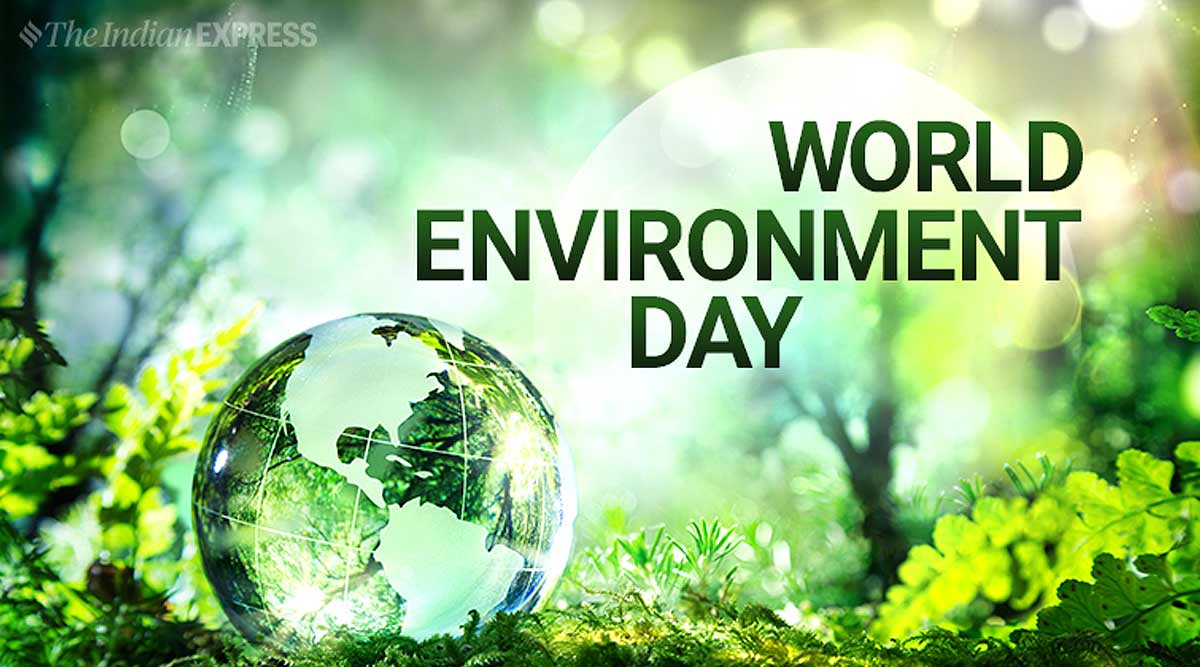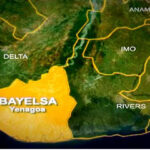- FG calls for investment in restoration, nature-based solutions
- Declare state of emergency on environment – HOMEF
The 2024 World Environment Day under the theme of land restoration, building drought resilience and combating desertification was marked across the globe with a call for urgent actions to tackle the environmental crisis.
According to UNEP, over 3,900 events were registered across the globe, by far the biggest recorded for World Environment Day (WED) ever and the day’s hashtag trended at number one and there were over 22,000 articles published in almost 6,000 media outlets in 148 countries.
The Executive Director of UNEP, Inger Andersen, said: “These numbers show that environmental action and challenges are on everyone’s mind. They show that people want to be involved and want change. And they deliver real support for the land restoration agenda. As we must remind ourselves, land restoration is the golden thread that runs through the three Rio conventions.”
She said the events of floods, heat waves killing people and scientific findings are reminders that “we must urgently increase action and ambition on the crises we face, the crisis of nature and biodiversity loss and desertification, the crisis of climate change, and the crisis of pollution and waste, to help protect the most vulnerable populations.”
“This is what member states and UNEP are working on together and what we must push harder to achieve by pushing harder to fulfil the commitments we have made,” she said.
Andersen also recalled that at UNEA-6, the member states adopted 15 resolutions that target pressing environmental challenges, with a focus on addressing issues that affect the most vulnerable in our societies.
“We saw a resolution on aligning the extraction and management of minerals and waste with the 2030 Agenda. We saw a resolution on environmental assistance and recovery in areas impacted by armed conflict. We saw resolutions aimed at improving air quality – through regional cooperation on air pollution and tackling sand and dust storms; a resolution that asked UNEP to back efforts to combat desertification and land degradation; resolutions on highly hazardous pesticides, on improving water quality and on strengthening ocean governance,” she said.
She said restoration boosts livelihoods, lowers poverty and builds resilience to extreme weather, supporting the Sustainable Development Goals.
“We know that restoration increases carbon storage, making it a key tool for achieving the Paris Agreement. We know that restoration avoids species extinctions, making it a vital tool to achieving the Kunming-Montreal Global Biodiversity Framework.”
“So, we need to get behind the UN Decade on Ecosystem Restoration, which is backing commitments to restore one billion hectares of land, and the UNEA-6 resolution to strengthen sustainable land management is an important tool to do this,” she added.
She however noted that for the COP, UNEP is co-leading Land Day with UNDP, focusing on sharing experiences to help countries deliver their commitments, increase nature-based solutions, and strengthen drought resilience, restoration and role of pastoralism.
As Nigeria also marked the World Environment Day, it called for promotion of sustainable land use practices, enforcing land tenure rights and cracking down on illegal logging, deforestation, poaching and all other acts capable of destroying our natural environment.
The Minister of Environment, Balarabe Abbas Lawal, said Nigeria’s land resources are under immense pressure from a variety of factors ranging from deforestation, unsustainable land management practices and the adverse impacts of climate change.
He said these challenges not only threaten the health and well-being of the people but also jeopardise the sustainability of ecosystems and the prosperity of future generations, adding that their Semi-Arid and Sahel regions are characterised by land degradation, drought, and desertification and in turn exacerbate poverty and food insecurity within the society.
“These factors also contribute to joblessness, social unrest and conflict in these areas. Therefore, we must collectively take decisive actions capable of reversing these trends and build a more sustainable future before it becomes too late.
“We must invest in the rehabilitation and restoration of degraded landscapes through afforestation, reforestation, and sustainable land management techniques that would enhance ecosystem services such as carbon sequestration and water filtration,” he said.
Meanwhile, Health of Mother Earth Foundation (HOMEF), in its submission for the day, urged the federal government to urgently declare a state of emergency on the environment.
The Executive Director of HOMEF, Dr Nnimmo Bassey, said this year’s celebration urges us to reflect on our stewardship duty towards nature, the environment and all living beings rather than continuing with predatory and destructive relationships that negate our well-being.
He added that steps must be taken to halt deforestation, biodiversity erosion and land degradation, and without serious climate action, humanity will remain on a downward spiral to multiple crises that are already plaguing the world today.
While noting that now is a good time for reflection and a change of direction, Bassey noted that the 2024 WED offers Nigeria a template for socioeconomic and environmental reexamination and action.
He explained that parts of Africa are ravaged by environmental degradation, water stress and drought, and Nigeria is particularly affected by desertification and other ecological harms.
“As we celebrate World Environment Day, we remind ourselves that our environment has been plagued with destructive activities especially through resource extraction and poor land-use changes. Nigeria needs an emergency environmental restoration plan across board as the only way to build resilience and ensure a safe future.
“This is our duty to ourselves and to future generations and immediate steps should be taken by the Nigerian government to ensure the proper clean-up of polluted lands, restoration of the same and payment of compensation for damage suffered.
“We must wake up from the futile dream that the earth can be recklessly exploited without dire consequences. We need to understand that the generous gifts of nature must be handled with gratitude and care.
“We are living witnesses to the crimes committed in mining communities, oil fields and conflict zones. We must protect our biodiversity, reject species-eroding genetic modifications of all sorts, and support harmonious relationships with nature,” Bassey said.
He observed that the day is an important one for governments to resolve to ensure that communities are fully informed, consulted and their consent received before projects that impact the environment are designed or implemented.
It maintained that it must never be forgotten that these communities continuously tackle the impacts of the multidimensional ecological crisis in their unsupported and vulnerable state and deserve to be protected.
“We should change our policies and choices to live sustainably in harmony with nature, with the complete understanding that the planet is our only home and that her resources are finite,” he said.
Meanwhile, the Minister of State for Environment, Dr Iziaq Adekunle Salako, maintained that Nature-Based Solutions (NBS) is a way to address environmental challenges in a way that protects the well-being of all creatures on planet earth and conserves biodiversity.
He said the benefit of Nigeria’s biodiversity is estimated to be over $8 billion per annum and its biodiversity is a global public good that has value for the entire world.
“Thus, we should be frontal in leading to galvanise world attention to nature-based solutions and nature financing.
“Nigeria’s resources and placement in the world offers a good platform for leading a global crusade for more attention for the deployment of natural processes to tackle socio-environmental challenges of climate change in a sustainable manner,” he said.

 Join Daily Trust WhatsApp Community For Quick Access To News and Happenings Around You.
Join Daily Trust WhatsApp Community For Quick Access To News and Happenings Around You.


